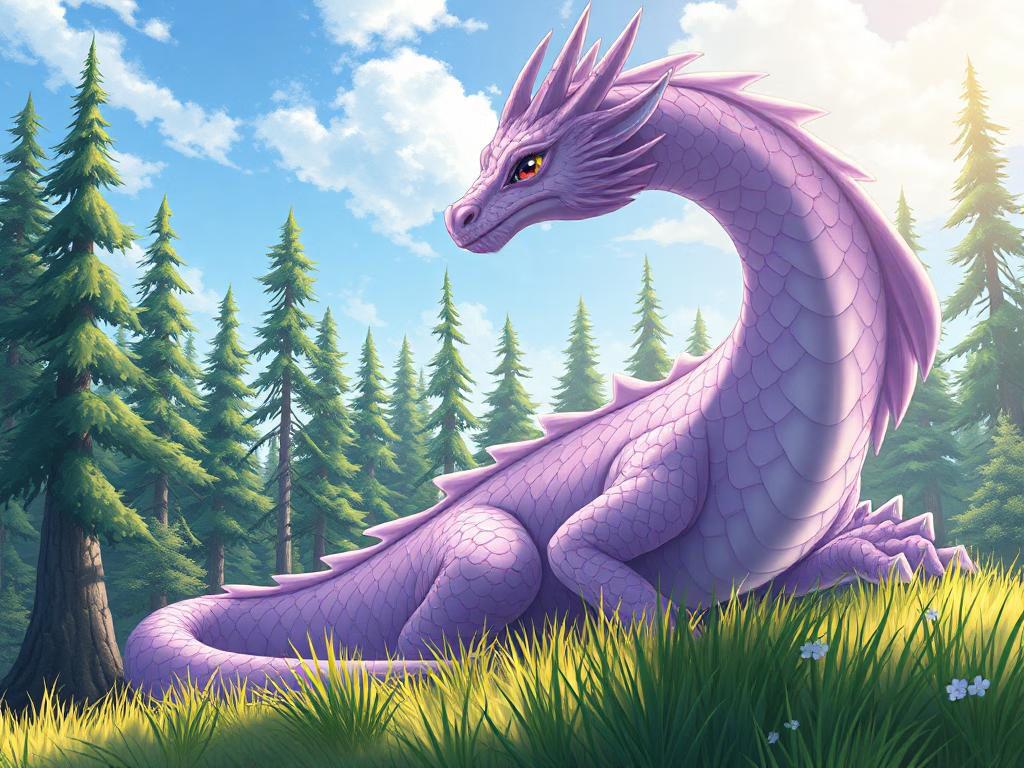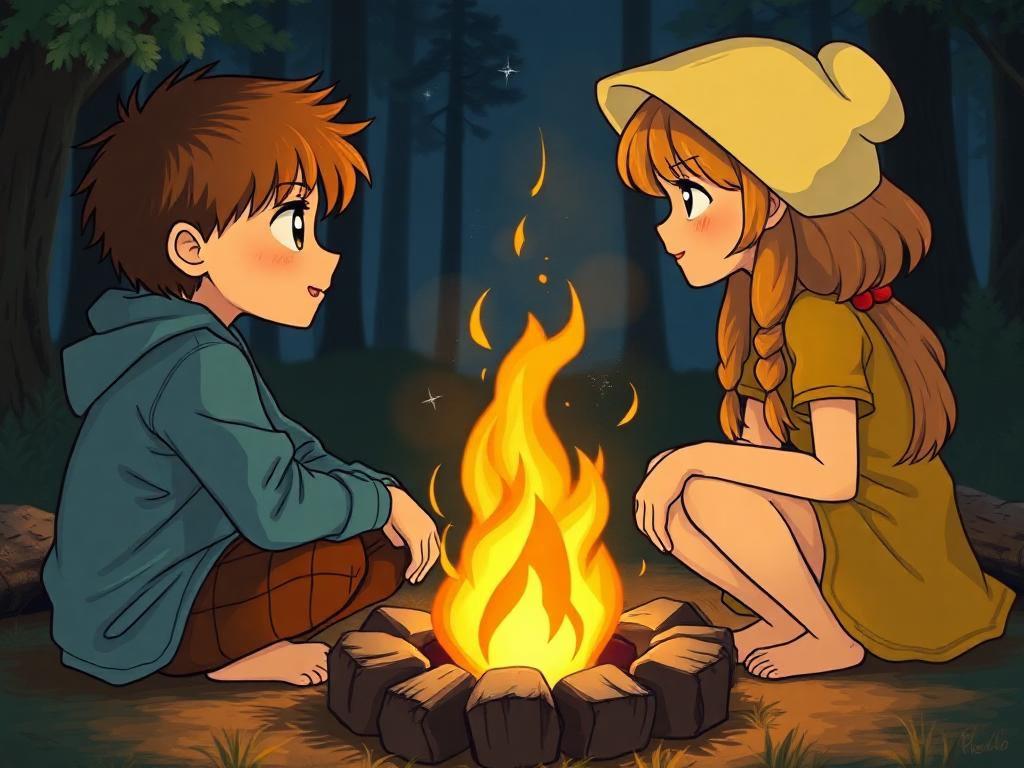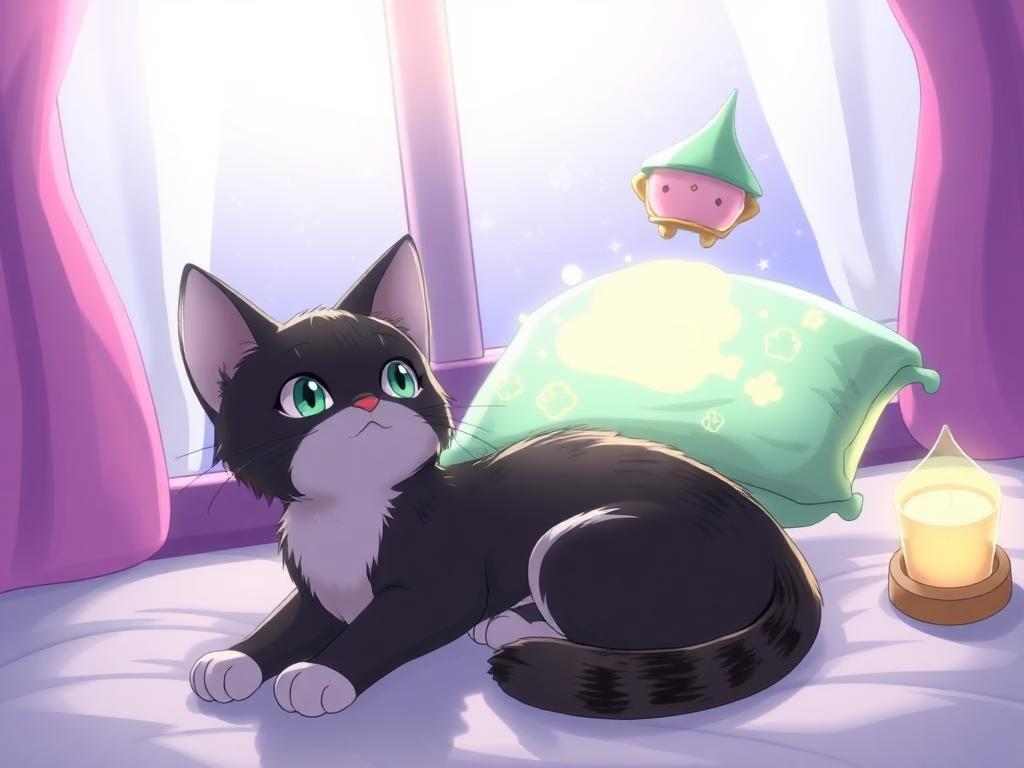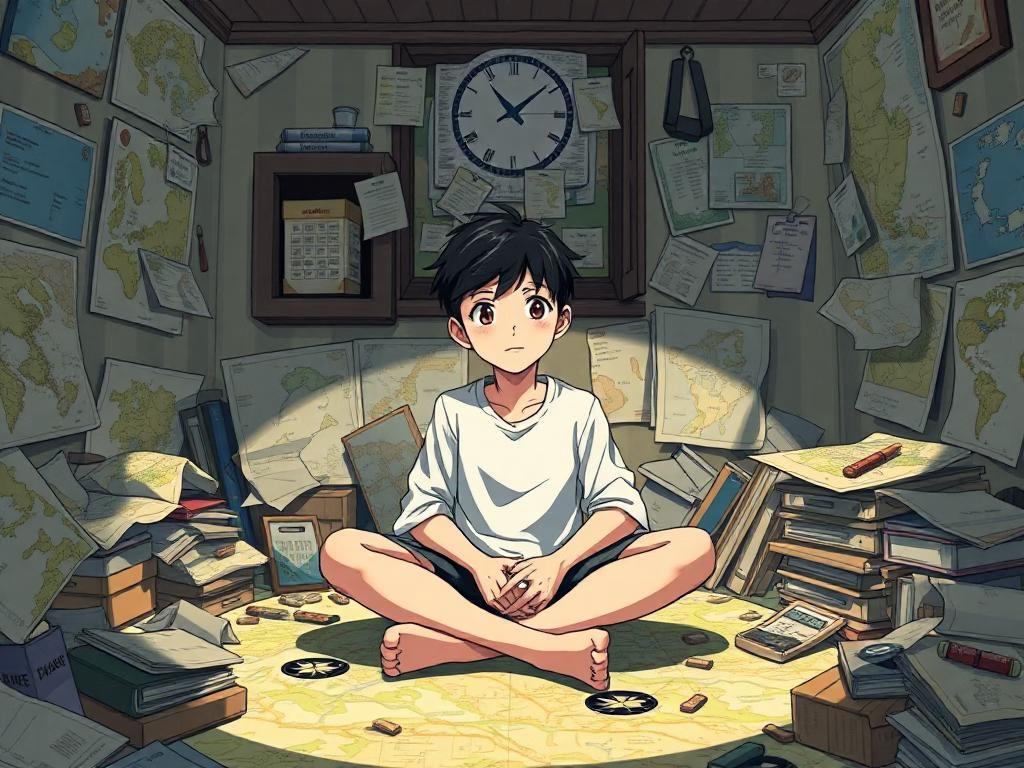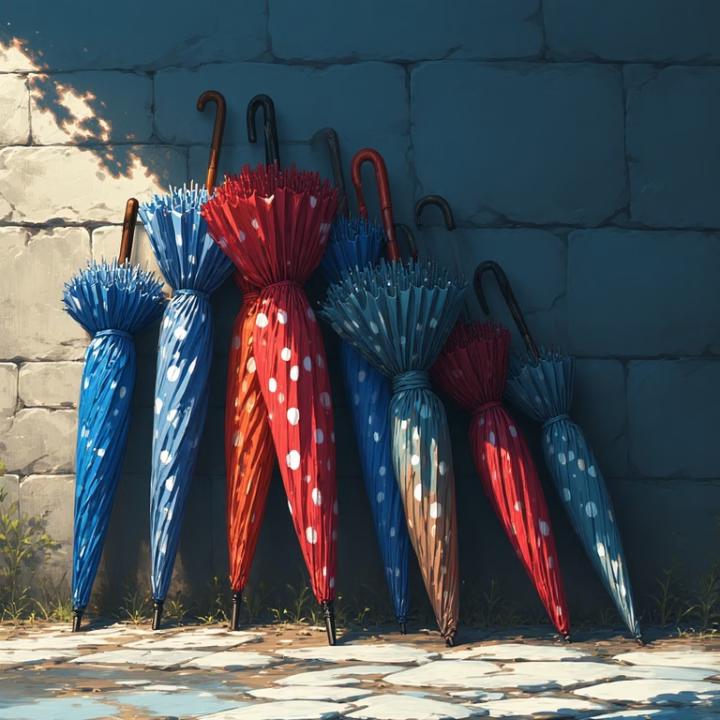
It began with rain.
Not the kind that falls in gentle sheets, nor the warm, lazy drizzle that lingers over Penang’s back lanes like a sigh. This was a sudden rain—the kind that arrives without warning, as if the sky had simply forgotten to hold itself together.
Thirteen-year-old Eddy Tan was halfway down China Street when it hit. One moment, the air was thick with the scent of frying shallots and damp stone; the next, the heavens cracked open. He cursed under his breath, slinging his backpack over his head, and broke into a sprint toward the ghaut—the narrow descent where the old tidal inlet curled beneath a low stone bridge like a sleeping serpent.
He wasn’t the only one seeking shelter.
Under a frayed blue tarp stretched between the bridge and a crumbling shophouse, an old man sat on a low wooden stool, hunched over a broken umbrella. He didn’t look up as Eddy skidded in, dripping, breathless. The man’s hands moved with quiet precision—threading a needle with waxed silk, guiding it through a tear in the canopy, pulling each stitch tight like a secret being sealed.
Eddy watched, mesmerized.
The umbrella was old—its fabric once white, now yellowed at the edges, with a crooked metal rib jutting out like a broken finger. The man didn’t rush. He didn’t speak. He just worked, his fingers steady despite their age, stained faintly with rust and glue.
“You fixing that for someone?” Eddy finally asked, wiping rain from his brow.
The man glanced up. His eyes were dark and deep-set, framed by wrinkles that looked less like age and more like the grooves of a well-worn book. He nodded once.
“Who?”
The man didn’t answer. Instead, he held out a small pair of pliers. “Hold the rib,” he said, voice soft, accented with the lilting cadence of Penang Hokkien. “Steady.”
Eddy hesitated. Then, slowly, he took the tool.
And so, beneath the groaning tarp, with the rain drumming above and the ghaut swelling below, Eddy Tan—boy of few words, fewer friends, and a home that felt more like an echo—held his first umbrella rib.
Days passed. Then weeks.
Eddy began to return. Not every day. Not even often at first. But when the clouds gathered, when the air turned heavy, he found himself walking toward the ghaut, as if drawn by something he couldn’t name.
The old man—Mr. Lim, he learned—never asked why. He only nodded when Eddy arrived, and sometimes handed him a cup of teh tarik from the thermos he kept tucked in a wooden crate. The tea was sweet, milky, and always just warm enough.
“You don’t charge people,” Eddy said one afternoon, watching as Mr. Lim carefully glued a split shaft.
“No.”
“Why?”
Mr. Lim paused. His fingers brushed the edge of a small wooden box beside him, its surface worn smooth by time. “Because no one should walk in the rain with a broken umbrella.”
“That’s it?”
“That’s enough.”
Eddy frowned. “My dad used to say that about everything—That’s enough. Then he left.”
Mr. Lim looked at him then—really looked—and for the first time, Eddy felt seen. Not as a kid skipping school, not as the quiet boy in the back row, but as someone who carried something heavy.
“He left because of the rain?” Mr. Lim asked quietly.
Eddy snorted. “Nah. He left because of my mom. Because of money. Because of… I don’t know.”
Mr. Lim returned to his work. “People leave for many reasons. But the rain… the rain stays.”
The stall was simple: a folding table, a crate of tools, a row of umbrellas leaning against the wall like tired sentinels. Some were whole, others in pieces. Each had a story, though Mr. Lim rarely told them.
But Eddy began to notice things.
The way Mr. Lim always mended the silk ones first. The way he folded each repaired umbrella with ritual care, wrapping the strap just so. The way he never touched the sky-blue one hanging from a nail in the wall—its handle carved with the delicate curve of a lotus, its fabric thin as memory.
One day, after a long silence broken only by the click of pliers and the drip of drying glue, Eddy pointed to it.
“That one’s torn,” he said. “Near the seam.”
Mr. Lim didn’t look. “Not broken yet.”
“It is.”
“It’s not mine to fix.”
“Whose is it?”
A long pause. The tide below gurgled, pulling at the roots of old mangroves.
“My wife’s,” Mr. Lim said at last. “Mei Lan. She loved the rain. Said it made the world clean.”
Eddy waited.
“She taught school. Walked home every day with this umbrella. Even when the sky was clear, she carried it. Just in case, she’d say.”
“And?”
Mr. Lim’s hands stilled. “Thirty years ago, there was a storm. A bad one. The ghaut rose fast. They found her umbrella days later, caught in the trees. She was gone.”
Eddy swallowed. “And you’ve been fixing umbrellas ever since?”
Mr. Lim nodded. “I told her, once, if she ever lost hers, I’d make it whole again. So I keep fixing them. In case she comes back. In case she needs to stay dry.”
The words hung in the air, fragile as a spider’s thread.
Eddy didn’t know what to say. He didn’t cry. But something inside him—something tight and cold—shifted, just slightly.
The storms grew heavier as the monsoon deepened.
One night, a flood surged through the ghaut, washing debris against the bridge, submerging the lower steps. When Eddy came the next morning, the stall was gone. The tarp had torn away. The table was overturned. The umbrellas—scattered, some swept into the water.
And Mr. Lim wasn’t there.
Eddy searched the shophouses, asked the mamak stall owner, even went to the little clinic on Acheen Street. No one had seen him.
For three days, he returned anyway.
On the fourth, he found a small wooden box where the table had been. Inside: the sky-blue umbrella, fully mended, its tear stitched with silver thread. Beside it, a spool of the same waxed silk Mr. Lim used, and a note in careful, slanted handwriting:
For the next mender.
Some things are not meant to stay dry.
But they can still be whole.
Eddy held the umbrella. It was lighter than he expected.
Months passed. The rains softened. The city moved on.
Then, one afternoon, the sky darkened again.
Eddy stood beneath the bridge, where the stall once was. He had brought his own umbrella—his father’s old black one, with a wobbly shaft and a torn panel he’d tried to tape shut. But today, he wasn’t trying to stay dry.
He had brought the blue umbrella instead.
And a needle. And thread.
He sat on the same stool—replaced, but the same in spirit—and began to work.
He wasn’t perfect. His stitches were uneven. His hands fumbled. But he kept going.
When the rain came, it fell in steady waves, turning the ghaut into a mirror of shifting grey.
And then, through the curtain of water, a small figure appeared.
A girl, no older than eight, drenched, clutching a pink umbrella with a cartoon cat on the canopy. One of the ribs had snapped, and the fabric flapped like a wounded wing.
She hesitated at the edge of the shelter.
Eddy looked up.
He didn’t smile. Not yet. But he nodded, just as Mr. Lim once had.
“Come here,” he said, patting the space beside him. “Let’s fix it.”
The girl stepped forward.
And under the bridge on China Street Ghaut, where the tide still remembers the past and the rain still falls like grace, the mending continued.
The End.
